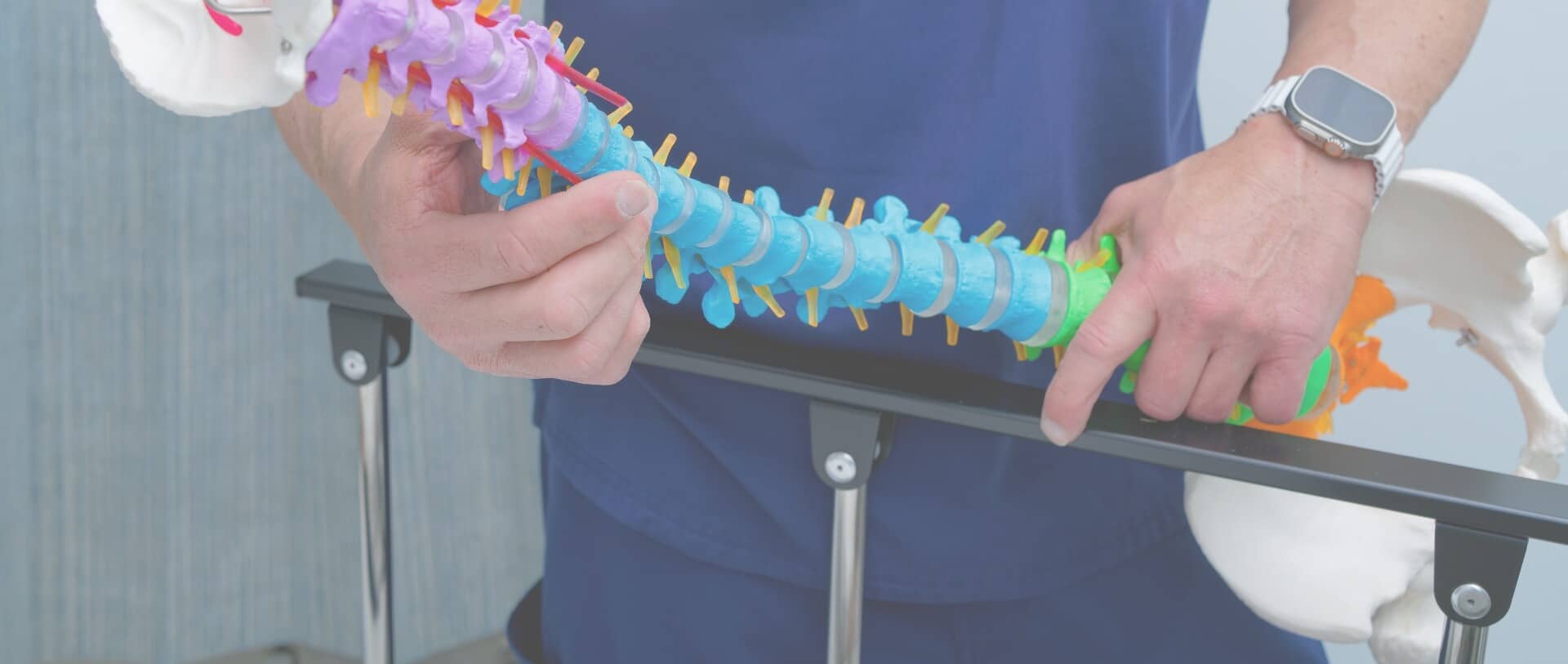
PROCEDURES
Lateral Lumbar Interbody Fusion
Lateral lumbar interbody fusion is a surgical procedure that aims to help patients who suffer from back pain due to spinal instability or herniated discs. Not only does this procedure offer a minimally invasive approach, but it also boasts a faster recovery time compared to traditional back surgeries. With lateral lumbar interbody fusion, patients can expect to get back to their daily activities sooner rather than later. Call Gottlieb Spine to set up a consultation to see if you’re a good candidate for the procedure.
What Is a Lateral Lumbar Interbody Fusion?
Lateral lumbar interbody fusion is a procedure to stabilize the spine, relieve pressure on irritated nerves, and ensure this pressure does not return. It can also be referred to as extreme lateral interbody surgery (XLIF), but both names refer to the same technique. This minimally invasive spine surgery is used to treat spine conditions by fusing two or more vertebrae in the lumbar region of the spine to permanently stop movement between them.
This procedure differs from other spinal fusion surgeries because Dr. Gottlieb will access the affected vertebrae through the patient’s side, rather than through the abdomen or back. This side approach minimizes disruption to the muscles and tissues in the back, reducing postoperative pain and accelerating recovery.
What Conditions are Treated with XLIF?
XLIF can treat various spinal conditions in the lumbar region. If you are experiencing any of these conditions, Dr. Gottlieb may recommend XLIF as a potential solution:
- Degenerative disc disease: Occurs when the discs between vertebrae have deteriorated, leading to pain, instability, and nerve compression
- Herniated disc: Surgery is especially recommended if the disc(s) have herniated more than once
- Spondylolisthesis: This condition may be the result of trauma, degenerative changes, or a crack in one of the vertebrae. Due to the constant forces experienced in the lower back, this fracture does not usually heal on its own. Spondylolisthesis occurs when a cracked vertebrae slips forward over the vertebrae below it. XLIF can stabilize the affected vertebrae and reduce additional slippage.
- Scoliosis: In some cases, XLIF can be part of a comprehensive treatment plan to correct spinal deformities like scoliosis and realign the spine
- Stenosis: XLIF can alleviate symptoms of stenosis, caused by the narrowing of the spinal canal
- Spine fractures: Following a spinal fracture, XLIF can stabilize the spine by fusing the fractured vertebrae.
What are the Benefits of Lateral Lumbar Interbody Fusion Over Other Procedures?
Lateral lumbar interbody fusion offers several advantages over traditional posterior approaches or other spinal fusion techniques. Dr. Jamie Gottlieb and his team might recommend XLIF for certain patients based on their specific conditions and needs.
- Limited muscle disruption
- Direct access to the spine
- Reduced blood loss
- Faster recovery
- Small incision and scar
While there are many benefits to the XLIF approach, it is important to note that it may not be suitable for everyone. Dr. Gottlieb will conduct a thorough evaluation and consultation to determine if XLIF is the most appropriate plan of action for your condition.
What are the Steps to the Lateral Lumbar Interbody Fusion?
- Incision: A small incision is made on your side. This approach allows your surgeon to reach the intervertebral discs without disrupting the back muscles and structures to reach the spine.
- Disc Removal: The damaged disc is removed, which leaves space between the adjacent vertebrae.
- Fusion: A bone graft is inserted into the space, which encourages the growth of new bone and facilitates the fusion of the adjacent vertebrae
- Stabilization: To further stabilize the area, additional implants like rods or screws may be placed along the spine. These help hold the vertebrae in place while the fusion forms
The lateral lumbar interbody fusion procedure typically lasts two hours. This is dependent on the number of discs being operated on, whether or not previous surgery has been performed, and the severity of the pressure on the nerves.
How Do I Know I Need XLIF Surgery?
When your surgeon starts considering spinal fusion as a treatment option, you have most likely already explored conservative options, such as ice, heat, medication, physical therapy, and injections. If you’re still experiencing back pain following non-surgical treatment, spine surgery may be recommended.
If you’re suffering from a condition like stenosis or spondylolisthesis, there are generally two types of surgery done: decompression and fusion. If there is no instability, decompression alone may help symptoms. However, if there is significant instability, the spine may also need to be fused and a lateral lumbar interbody fusion may be recommended.

Top Quality Care at Gottlieb Spine
Allow Gottlieb Spine to bring you to your optimal state of health. If you’re struggling with a spine condition like degenerative disc disease, herniated discs, or spondylolisthesis, XLIF may be a solution for you. With minimal muscle disruption and faster healing, lateral lumbar interbody fusion provides an advanced approach to spine care. Contact Gottlieb Spine today to schedule a consultation and find out if you’re a candidate for XLIF surgery.
SCHEDULE A CONSULTATION